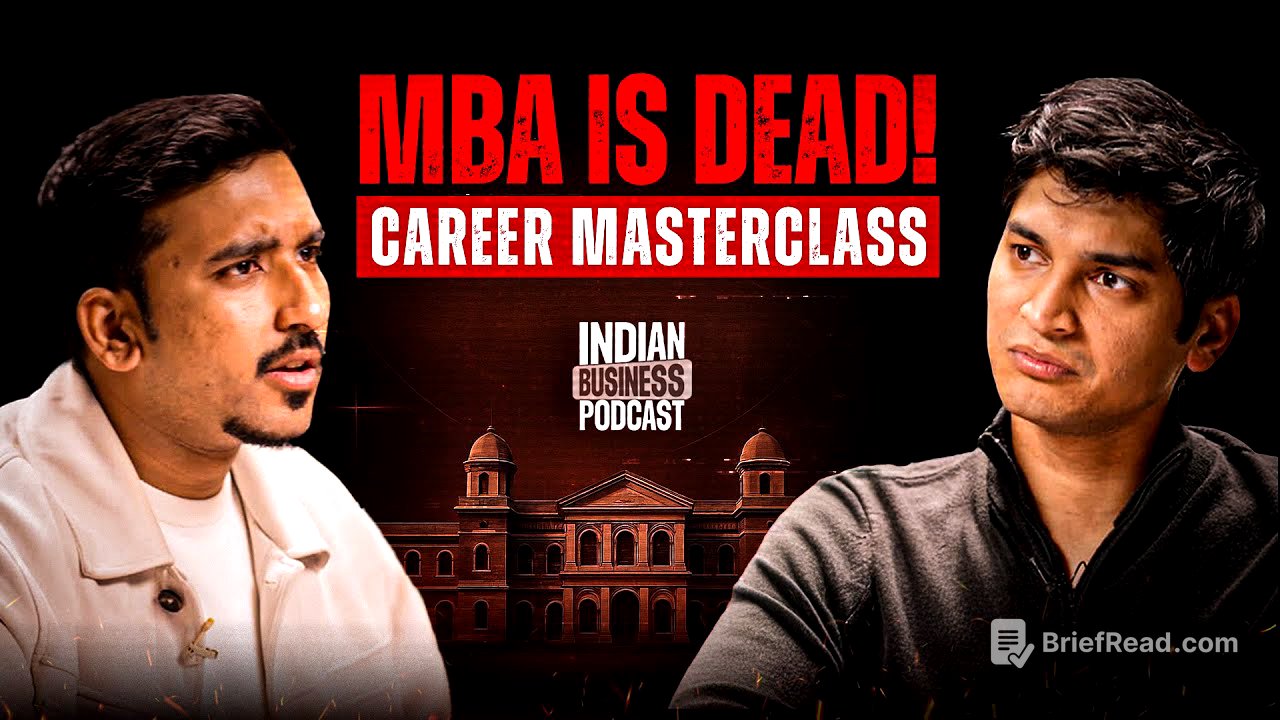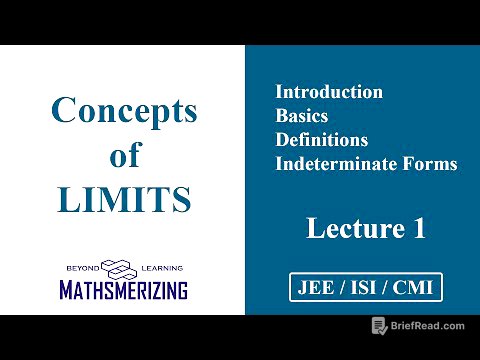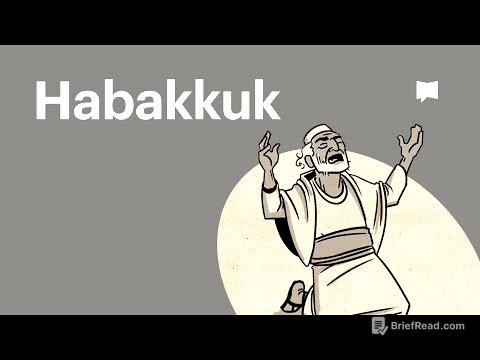TLDR;
This podcast features a conversation with Pratham Mittal, the founder of Masters' Union, discussing his journey, vision, and the opportunities within India's education system. He shares insights on building a successful educational institution, team management, and the importance of adapting to the evolving needs of the market.
- India needs more quality educational institutions to retain talent and boost its economy.
- Key values like strategy, frugality, and team spirit are crucial for entrepreneurial success.
- The current education system needs to evolve to focus on critical thinking, innovation, and practical skills.
Promo [0:00]
The host introduces the podcast, highlighting the need for innovative business schools in India and expressing admiration for Pratham Mittal's vision for Masters' Union. He aims to decode the opportunities in the education sector and inspire listeners to contribute to building a stronger education system.
Sponsor [1:33]
The podcast is sponsored by Odoo, an all-in-one business management software designed to streamline customer relationship management. Odoo helps businesses track leads, manage deals, and make data-driven decisions to drive growth, offering a free first application for life.
What is Masters’ Union [2:45]
The host expresses his admiration for Masters' Union, calling it a potential revolution in the Indian education system. He emphasizes the importance of business and entrepreneurship in empowering individuals and contributing to India's economic growth. Pratham humbly acknowledges the influence of top global institutions while aiming to evolve the education system to better suit India's needs.
Opportunities in the Education System [4:30]
The host sets the agenda for the podcast, focusing on understanding the opportunities in the education market. He mentions Pratham's statement that India needs 1200 more universities to become a $30 trillion economy, highlighting the significant infrastructure gap and potential for growth in the education sector.
Pratham being third generation Entrepreneur [5:45]
Pratham discusses his background as a third-generation entrepreneur, sharing his family's journey from a small sweet shop to a larger business. He emphasizes the challenges and responsibilities of carrying forward a family legacy, highlighting the importance of values passed down through generations.
Pratham's grandfather moved from Pakistan to India during partition and started as a tea seller for the local army. He then set up a small retail store and eventually focused on making sweets because of the higher profit margins. He named his sweet shop "Lovely Sweets" because it was the only English word he knew and he wanted to be aspirational.
Pratham shares three key values instilled by his grandfather: strategy (using loss leaders to attract customers), frugality (doing more with less), and team spirit (taking care of employees like family). He emphasizes that these values, rather than just financial resources, are what truly drive success across generations.
How to build a team? [17:40]
Pratham shares his approach to team management, emphasizing the importance of investing in employees and building emotional connections. He believes in giving team members multiple chances to improve, providing training and support, and having open, honest conversations about their growth. He highlights that longevity and emotional connection add more value to an organization than just individual merit.
Pratham advises young executives to assess a company's culture by looking at the tenure of senior employees and the leadership team. He suggests asking founders directly about their investment in employee growth during interviews.
How to identify great talents? [23:00]
Pratham shares his belief that people join companies with good intentions and the potential to grow. He emphasizes that it's the founder's responsibility to create a culture that fosters long-term commitment and investment in employees. He advises founders to be patient, understand their team members' challenges, and provide the necessary support for their growth.
Vision behind Masters’ Union [32:56]
Pratham shares his vision for Masters' Union, driven by the fact that India, despite its large population, lacks top-ranked universities globally. He aims to create a top 10 institution in India to retain talent and provide quality education. He believes that the current system, dominated by government-run universities, is hindered by bureaucracy and slow decision-making.
Ganesh’s experience of his college [37:54]
The host shares his negative experience with a private college affiliated with Pune University, highlighting issues with incompetent teachers, outdated textbooks, and restrictive university norms. He questions why private colleges, even those not affiliated with universities, often fail to produce top talent despite high fees and profit margins.
Market opportunity for Education [47:15]
Pratham states that education is not the right space if one is looking to become a billionaire. However, one can create a long-lasting institution. He emphasizes that people are willing to pay for quality education that delivers the right outcomes. He highlights the potential for high returns on investment in education, citing examples of engineering and business school graduates securing high-paying jobs.
Healthy scale for business in Education [52:40]
Pratham discusses the importance of scale in the education business, explaining that a flywheel effect is created as institutions grow and reinvest profits. He differentiates between grade A institutions, which should remain smaller to maintain quality, and those targeting the masses, which can scale to tens of thousands of students.
Gap in the market [57:06]
Pratham highlights the significant gap between the number of graduates in India and the availability of well-paying jobs. He estimates that only a small fraction of graduates secure jobs paying a decent salary, indicating a mismatch between the skills acquired and the demands of the job market. He also points out that true India is running chemist stores, tapris, restaurants, kirana stores.
Pratham and the host discuss the glorification of college education and the pressure on parents to treat their children as trophies. They emphasize the importance of parents studying data and understanding the market before pushing their children into specific career paths.
Financial Opportunity in the Education [1:14:00]
Pratham explains the financial dynamics of running an educational institution, stating that while profits cannot be taken out, they can be reinvested to expand the campus, acquire resources, and improve the quality of education. He highlights the potential for high net margins in the education sector.
Pratham shares innovative models to reduce costs, such as hiring practitioners instead of full-time faculty and leasing land and buildings instead of owning them. He reveals that Masters' Union was started with a minimal investment by leasing a place instead of buying it.
7 habits of highly effective people [1:34:15]
The host and Pratham discuss the importance of instilling a love for learning and proactive thinking in students. They reference the book "Seven Habits of Highly Effective People" and emphasize the need to create a conducive atmosphere for learning.
Models of Pratham’s Business [1:37:08]
Pratham shares the models behind Masters' Union and Tetto, aiming to provide insights for others looking to start business schools. He emphasizes the importance of identifying a gap in the market, partnering with universities for degree programs, and adopting an asset-light approach to reduce capital expenditure.
Flywheel of Masters’ Union [1:45:17]
Pratham explains the flywheel effect at Masters' Union, where successful graduates become ambassadors, leading to lower customer acquisition costs and increased applications. He emphasizes the importance of delivering good outcomes and building trust in the market.
Attributes Pratham saw in students [1:51:08]
Pratham shares the attributes he looks for in students, including inherent curiosity and critical thinking skills. He uses unconventional questions and games in the application process to assess these qualities beyond grades and test scores.
Spotting a good apple and bad apple [1:56:17]
Pratham discusses the admissions process at Masters' Union, emphasizing the importance of authenticity, vulnerability, and a willingness to learn. He highlights the use of peer reviews and interviews to assess candidates beyond their academic achievements.
Importance of Diversity [2:01:00]
Pratham shares a personal anecdote about learning from a Lebanese classmate, emphasizing how diversity broadens perspectives and challenges preconceived notions. He explains how exposure to different cultures and backgrounds enhances business acumen and enables the development of products and solutions for a global market.
Experience of his Students [2:12:00]
Pratham details the unique curriculum at Tetto, where students travel to different countries each term to build businesses on specific themes. He explains how this hands-on, experiential approach fosters practical skills and a global mindset.
Balancing of basic and modern principles [2:22:20]
Pratham shares the 30-30-40 model for faculty composition at Masters' Union, balancing full-time faculty for core principles, visiting faculty from top global institutions for specialized knowledge, and practitioners for real-world skills.
Faculty’s Salary Range [2:28:20]
Pratham discusses the remuneration structure for different types of faculty, ranging from annual contracts for full-time faculty to hourly rates for visiting faculty and practitioners.
Addressing Placement Issue [2:30:40]
Pratham addresses the importance of placements in the Indian context, explaining how Masters' Union actively sells its students to target companies through a dedicated placement team. He highlights the unique approach of tailoring the offering to each company's needs and providing students with multiple opportunities for interviews and internships.
Pratham shares his approach to encouraging entrepreneurship, offering a founder fellowship with free office space and a monthly stipend for graduates pursuing their own ventures. He also allows students to participate in placements the following year if their startups don't succeed, providing a safety net and fostering a culture of risk-taking.
Conclusion [2:48:00]
The host expresses his gratitude to Pratham for sharing his insights and experiences. He emphasizes the importance of Pratham's work in transforming the Indian education system and expresses confidence in Masters' Union's future success.









